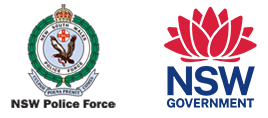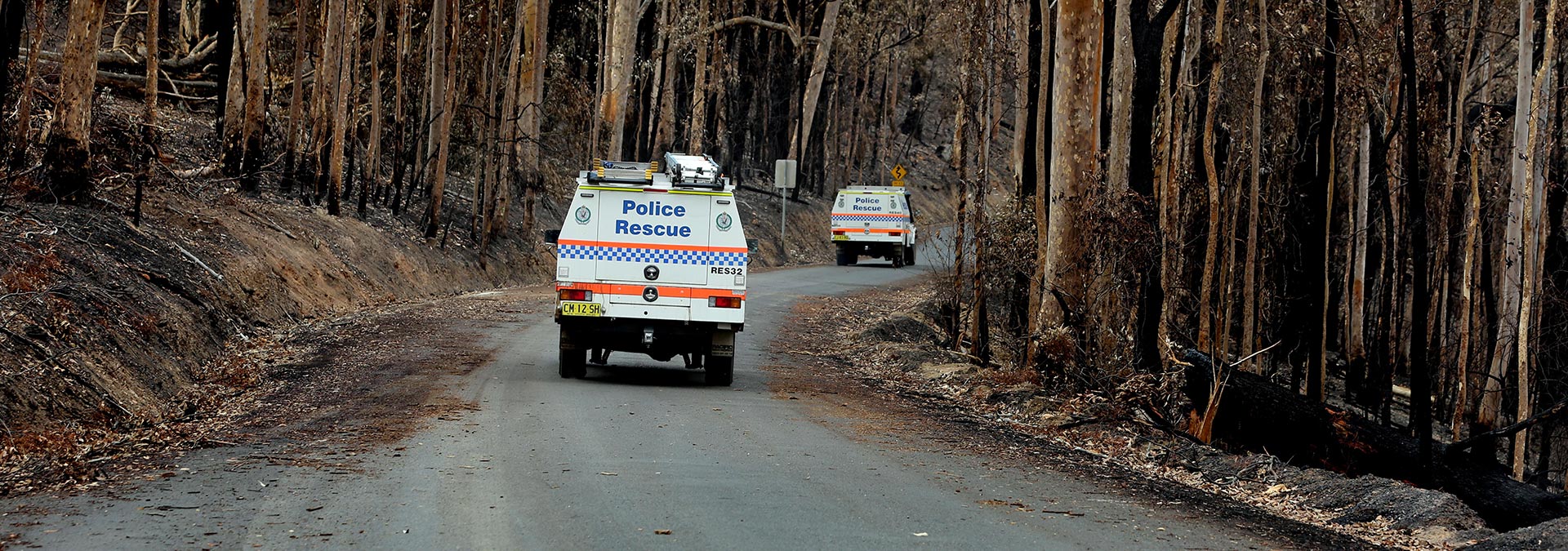The Traffic & Highway Patrol Command is responsible and accountable for the development and dissemination of advice on all matters relating to traffic policy, development, enforcement, education and road trauma. Further opportunity exists for developing initiatives to lower road trauma. The Command organises the NSW Police Force response and advice to all bodies in regards to the development of traffic legislation.
The Traffic & Highway Patrol Command is responsible for the management of the Corporate Plan, Program 3 - Traffic and is the key contact point for internal and external groups seeking advice on road safety and other traffic related issues.
The Command also oversights the evaluation of all new technology associated with traffic law enforcement making appropriate recommendations. This includes identifying and deciding upon major acquisitions.
Traffic & Highway Patrol Command comprises the following seven areas:
1. The Command Administration
The Command Administration manages the financial and administrative functions of the Command and also oversights associated traffic-related capital works projects.
2. Operations
- Traffic Support Group (TSG) - The TSG consists of a small task force of police cyclists, with the primary objectives of providing a high standard, safe and reliable VIP escort service for visiting dignitaries, Heads of State and on other occasions as required. The Group provides a high profile and intelligence driven operational support to Region and Local Area Commands to address road safety and crime issues. It is also used as a strike force to target known critical routes during State operations and holiday periods.
- Traffic Strike Force - The charter of the Traffic & Highway Patrol Command Strike Force is to target all aspects of road safety impacting upon the road network of New South Wales. The deployment of the Strike Force is based upon intelligence and resources can be deployed across all Local Area Commands within New South Wales. The Strike Force can deploy to any Region or LAC to carry out duties on behalf of the Commander of Traffic & Highway Patrol Command.
- Aerial Speed Enforcement (ASE) - The ASE is a program run by the NSW Police Force to target speeding drivers within NSW. A NSW Police Force aeroplane monitors the speed of motor vehicles between two marked surveyed lines on the road which are 500 metres apart.
- Random Drug Testing Unit - The RDTU is responsible for the coordination of the NSW Police Force Drug Testing vehicles and equipment to support state wide operations.
3. Traffic Policy Section (TPS)
The TPS formulates State traffic policy and monitors any changes or amendments to legislation. The section participates in the development and implementation of the Australian Road Transport Legislation and has a key role in disseminating it service-wide. The Section interacts with other stakeholders and road safety groups as part of the community consultation process. It formulates policy and standing operating procedures for crash investigation.
4. Operational Planning Unit
The Operations Planning Unit is responsible for the assessment and coordination of requests from assistance from the field. Assistance can be provided from Traffic & Highway Patrol Command in;
VIP Escorts
HWP / Strike Force Support
Random Breath Testing / Drug Testing Vehicles.
The Operational Planning Unit consists of the following:
- Planning & Intelligence Unit
- Traffic Research and Intelligence Unit - The Traffic Research and Intelligence Unit collects and disseminates statistical information about fatal, injury and major collisions on NSW roads, including mapping, and maintains an overview to brief the senior executive.
- RMS Enhanced Enforcement Program Coordinator - The Coordinator manages the Enhanced Enforcement Program and is the central contact and administrative point between the Service and the Roads & Maritime Traffic Management Directorate.
5. Investigations
- Metropolitan Crash Investigation Unit - The Metropolitan Crash Investigation Unit is based at Huntingwood. The Crash Investigation Unit is responsible for the investigation of serious traffic crashes on a 24-hour basis in the Sydney metropolitan area.
6. Traffic Technology Section (TTS)
This section is responsible for the evaluation of enforcement technology and development of contracts to supply NSW Police Force with suitable equipment. The Section also manages the following units.
- Breath Analysis & Research Unit - The Breath Analysis & Research Unit is responsible for maintaining the integrity of the State's breath testing program, including the provision and maintenance of all equipment throughout the state.
- Blood Sample Unit - The Blood Sample Unit is responsible for maintaining the integrity of the Police compulsory blood alcohol and drug driving programs.
- Radar Engineering Unit - The Radar Engineering Unit is a NATA accredited laboratory and is responsible for the technical evaluation, acceptance testing, certification, maintenance, servicing and calibration of speed detection and breath analysis equipment.
7. Transport Management Centre (TMC)
The TMC is the primary liaison point between Transport for NSW and NSW Police Force in relation to the daily monitoring of the road network and addresses any traffic management issues that may arise.

